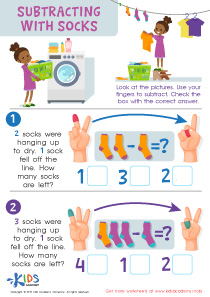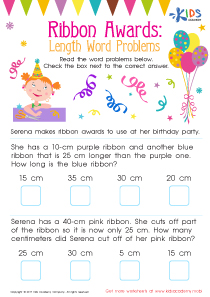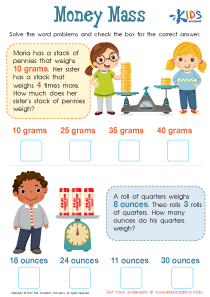Online Two-step Word Problems Worksheets for Kindergarten
21 filtered results
-
From - To
Introducing our Two-step Word Problems Learning Worksheets, expertly crafted for Kindergarten students! These worksheets are designed to challenge young minds and enhance problem-solving skills through engaging and developmentally appropriate math puzzles. Each sheet emphasizes comprehension and logical thinking, guiding children through the process of solving problems that require two sequential steps. Perfect for both classroom and home use, our Learning Worksheets not only make learning fun but also reinforce essential mathematical concepts. Equip your little learners with the skills they need to excel in math and beyond with this essential educational resource!
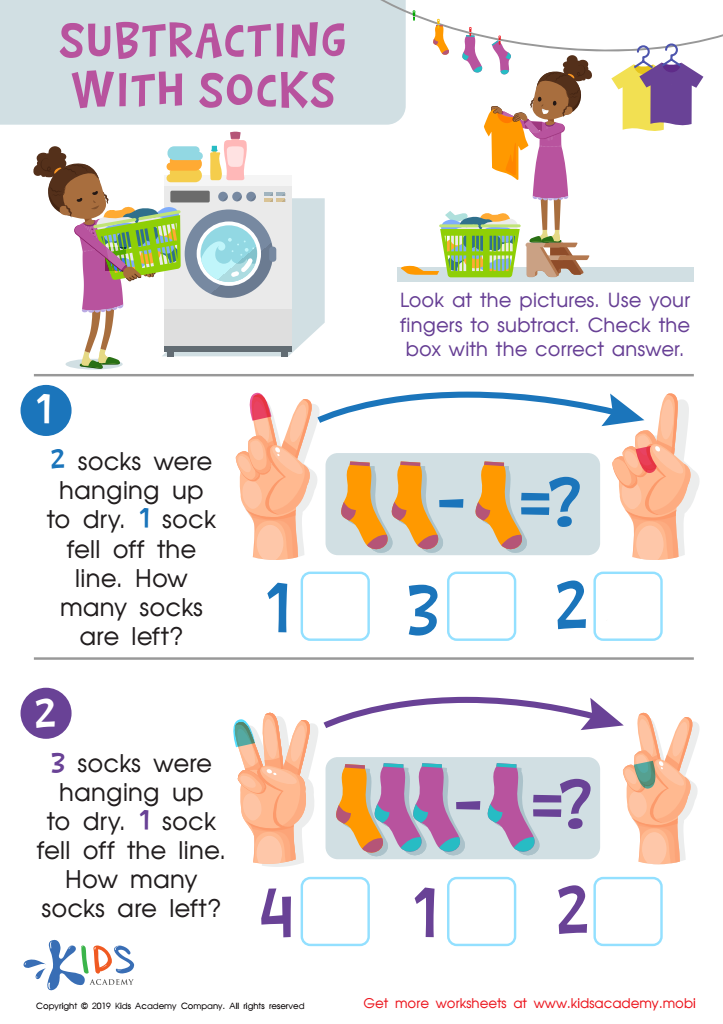

Subtracting Socks Worksheet
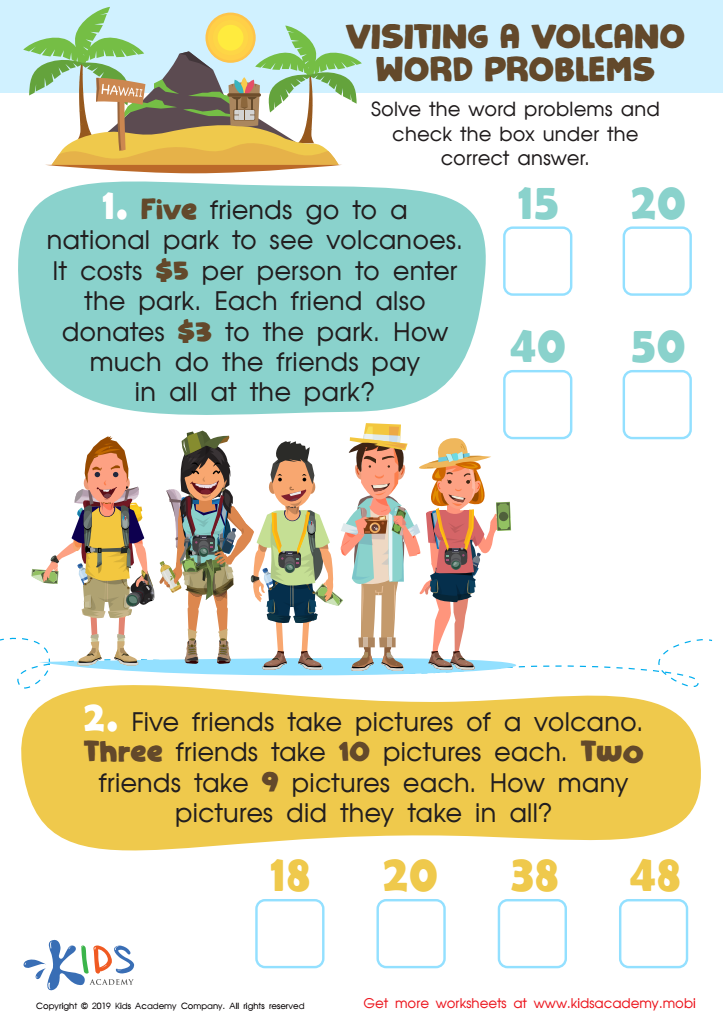

Visiting a Volcano Word Problems Worksheet


Enrichment -2 Step Word Problems Worksheet
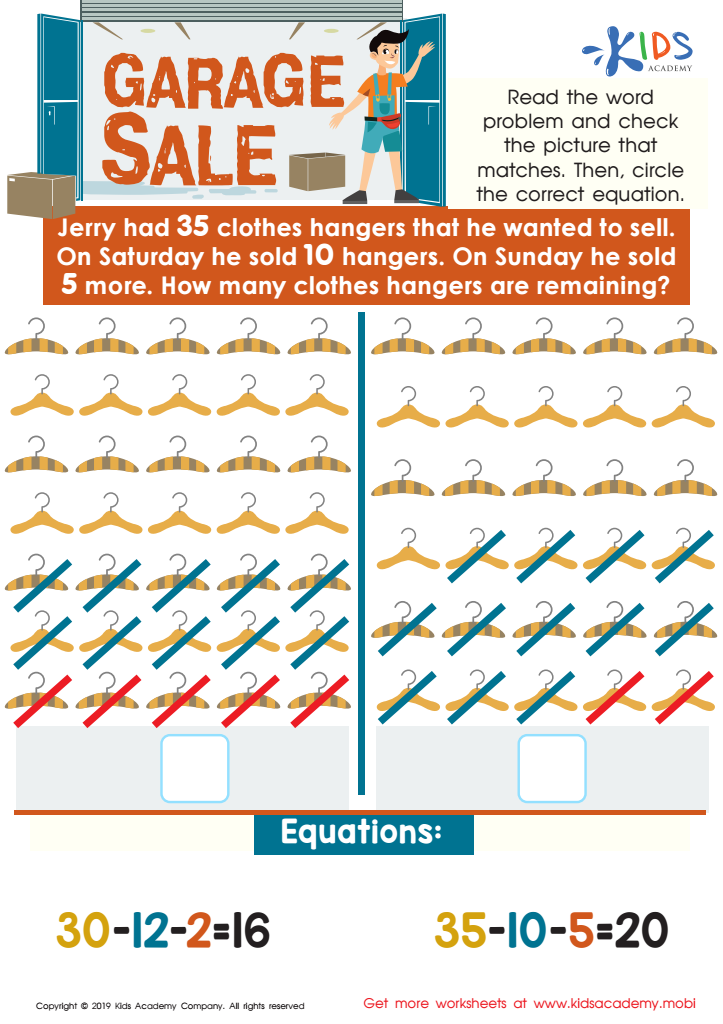

Garage Sale Worksheet
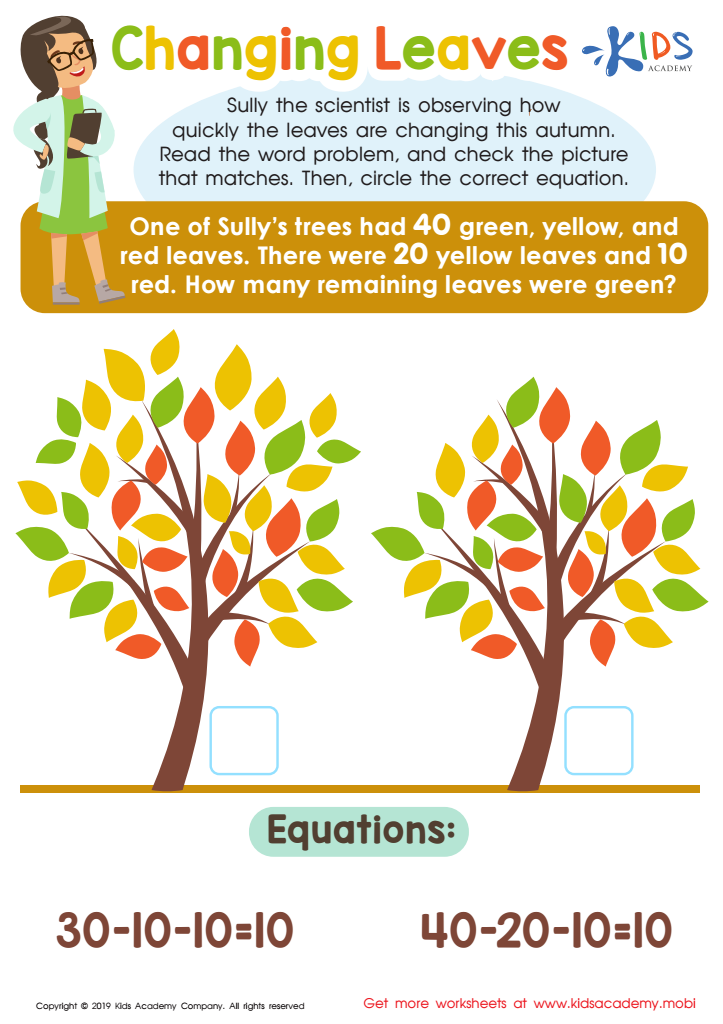

Changing Leaves Worksheet
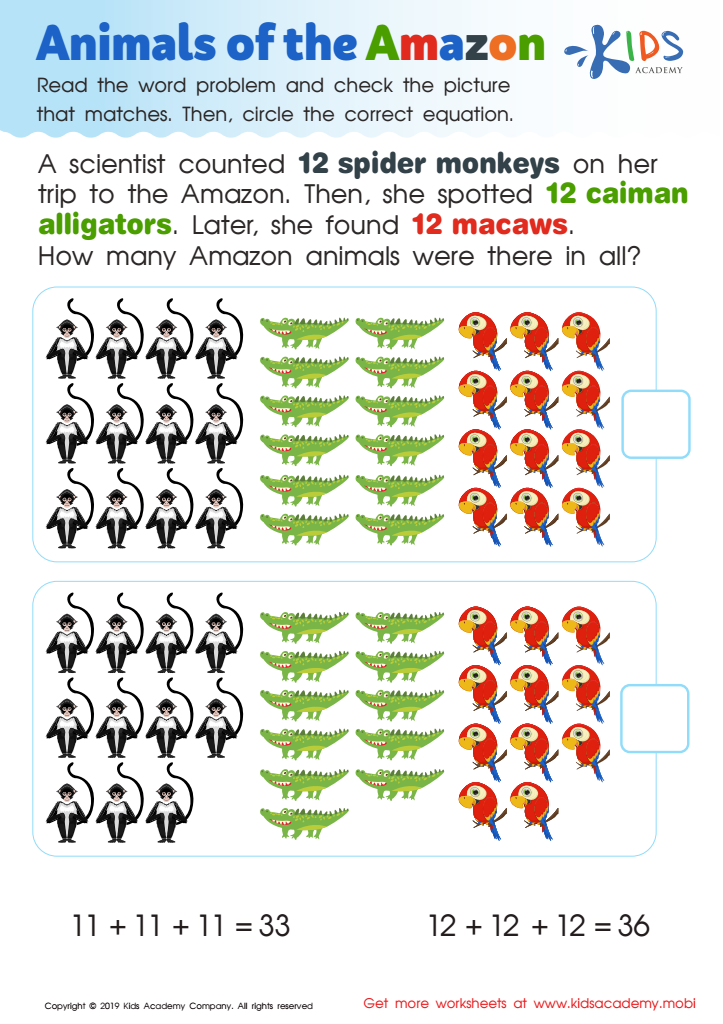

Animals of Amazon Worksheet


Adding Flower Petals Worksheet
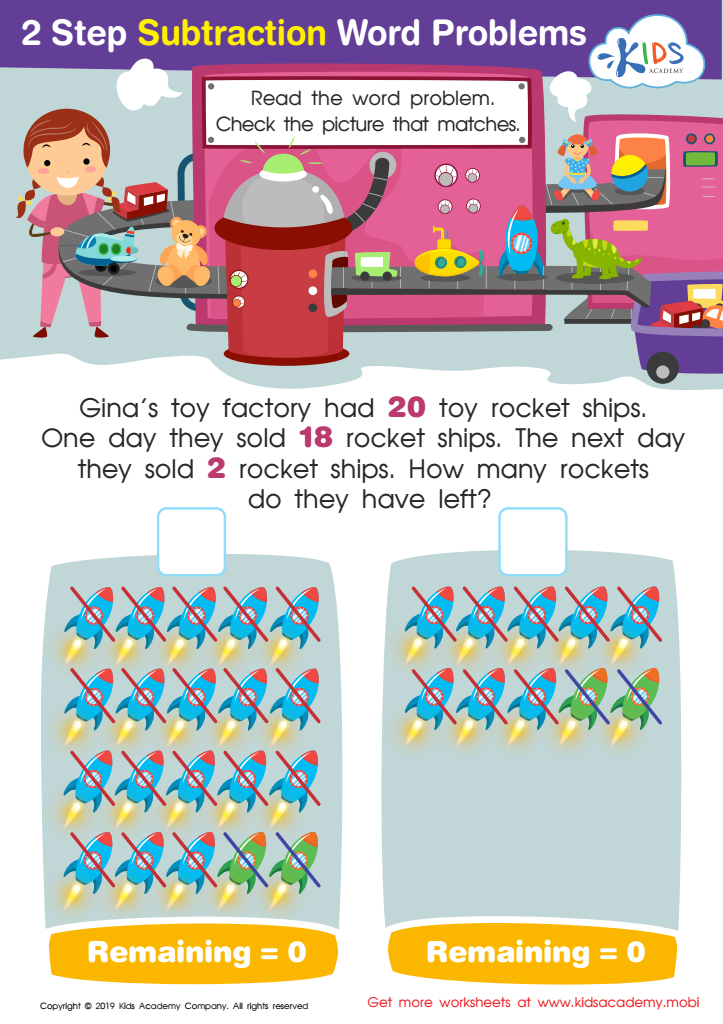

Step Subtraction Word Problems Worksheet
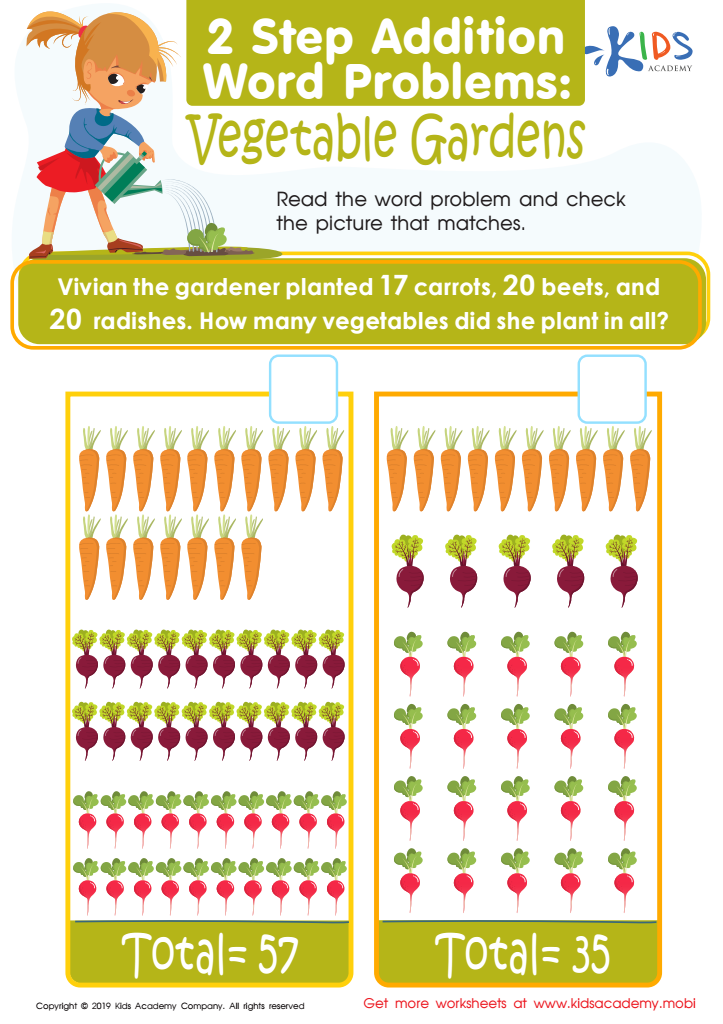

Vegetable Gardens Worksheet


Counting Seedlings Worksheet


Tricky Problems Worksheet: Part 2


Tricky Problems Worksheet: Part 1
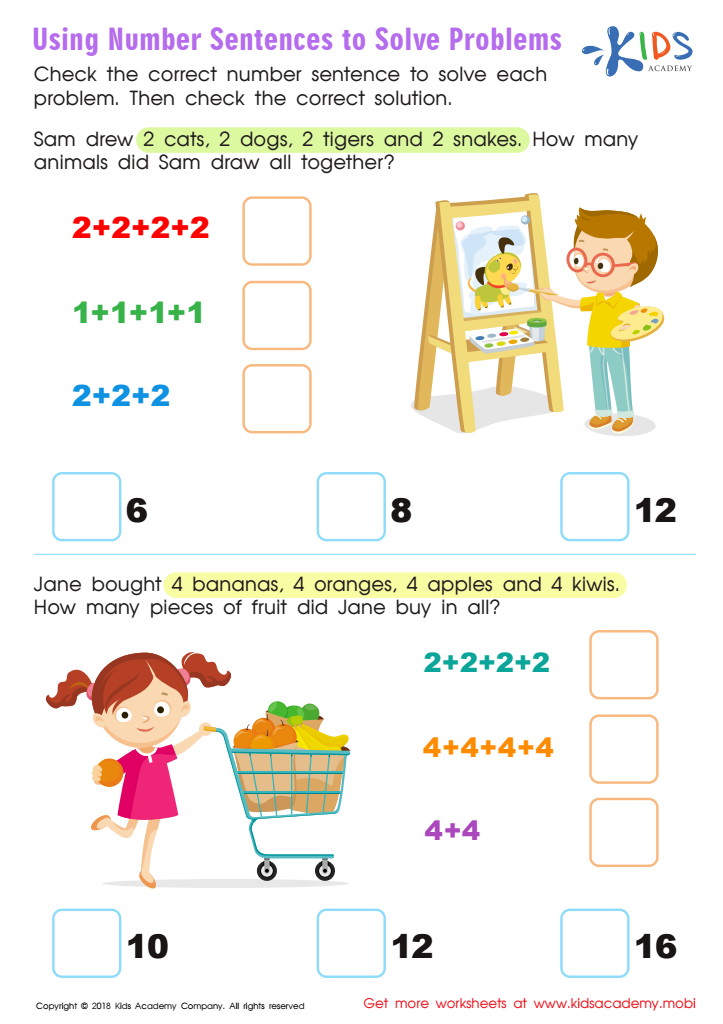

Using Number Sentences to Solve Problems Worksheet


Solve the Problem: Trick–or–treating Worksheet
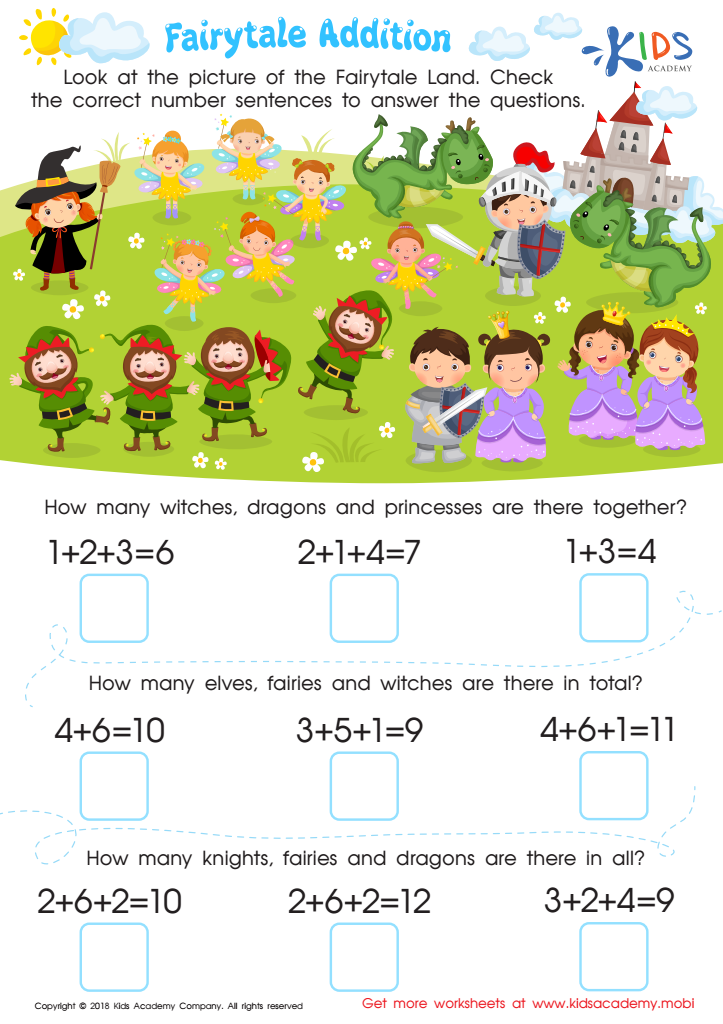

Fairytale Addition Worksheet
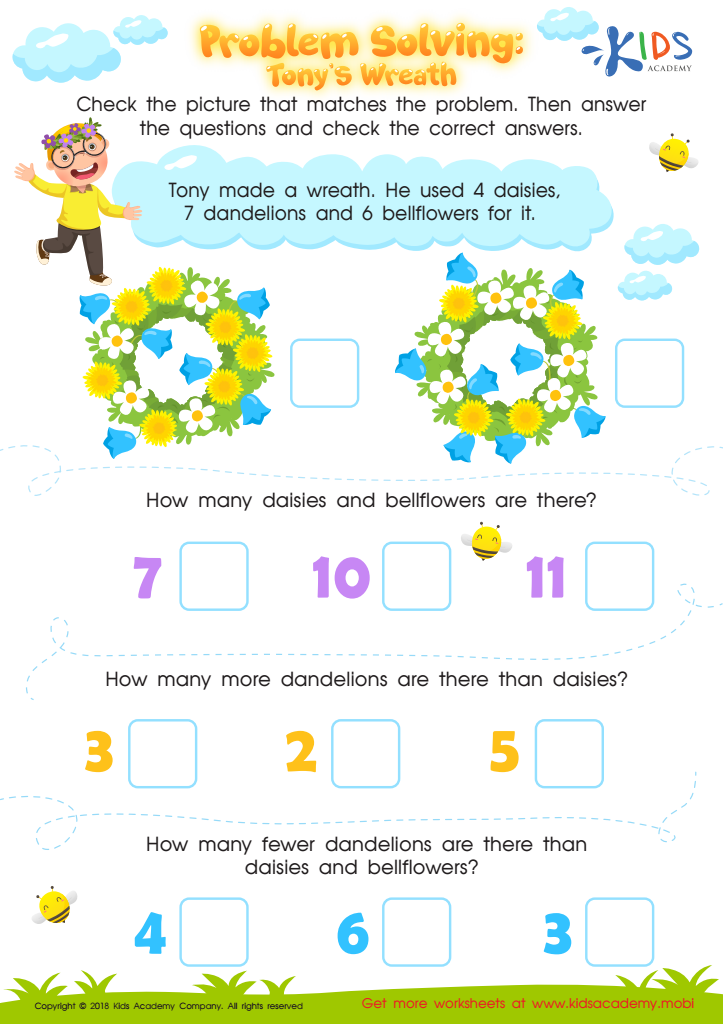

Problem Solving: Tony's Wreath Worksheet
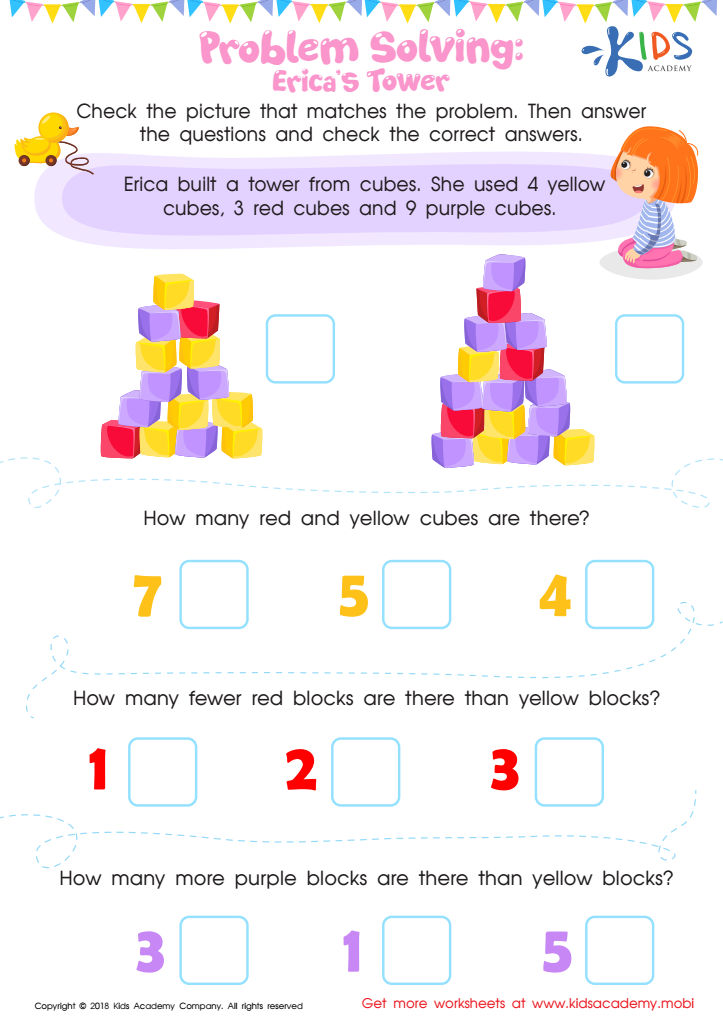

Problem Solving: Erica's Tower Worksheet
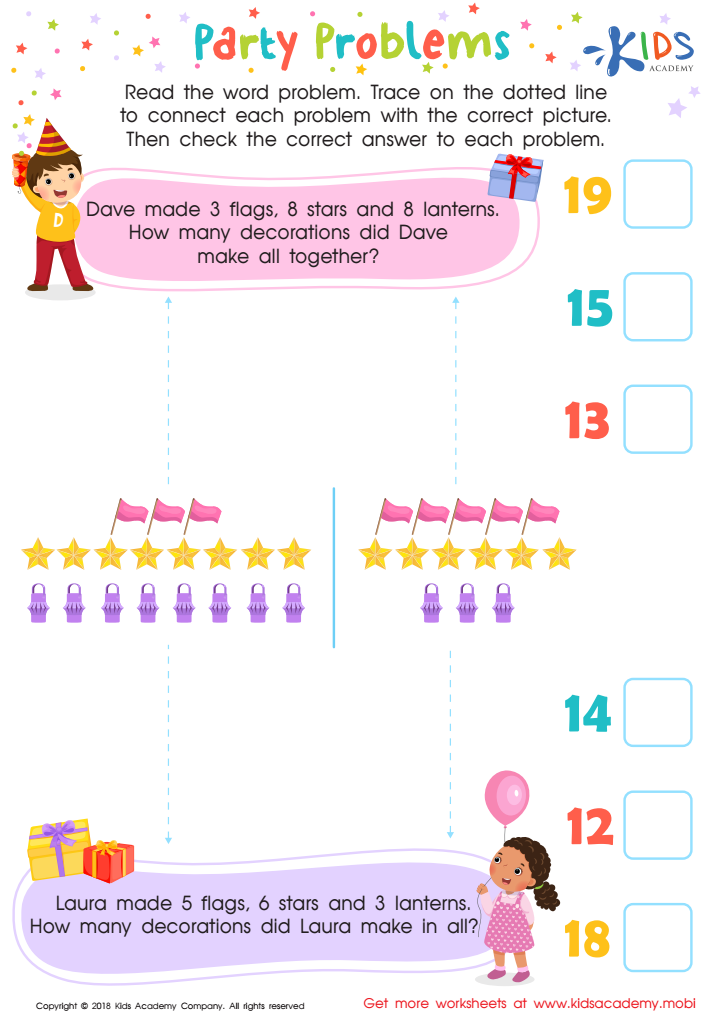

Party Problems Worksheet
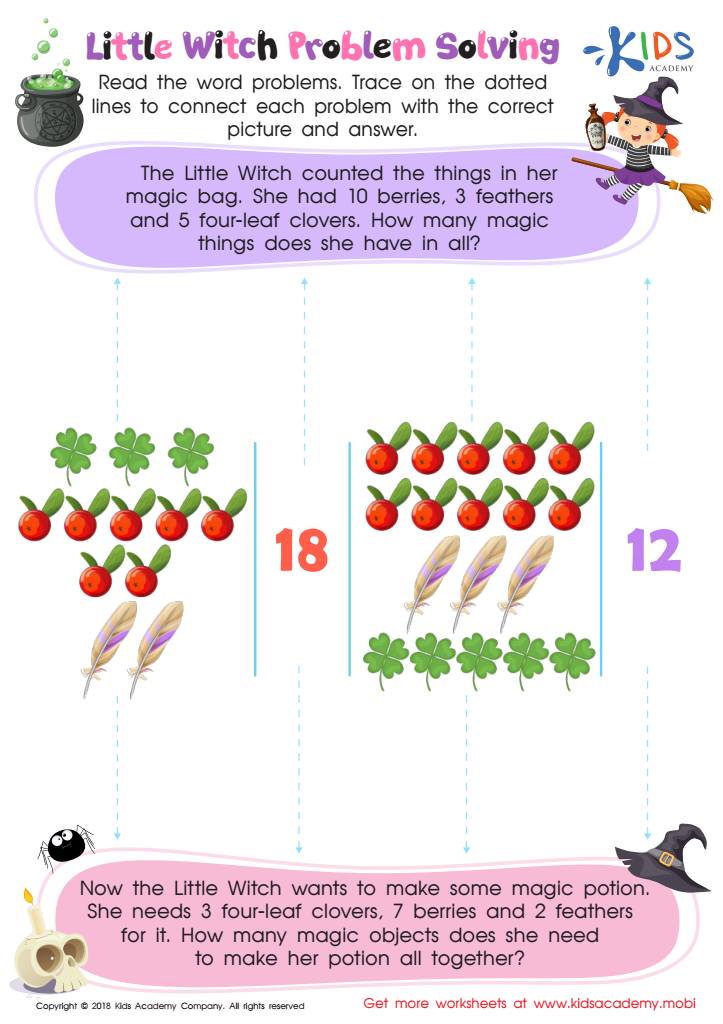

Little Witch Problem Solving Worksheet
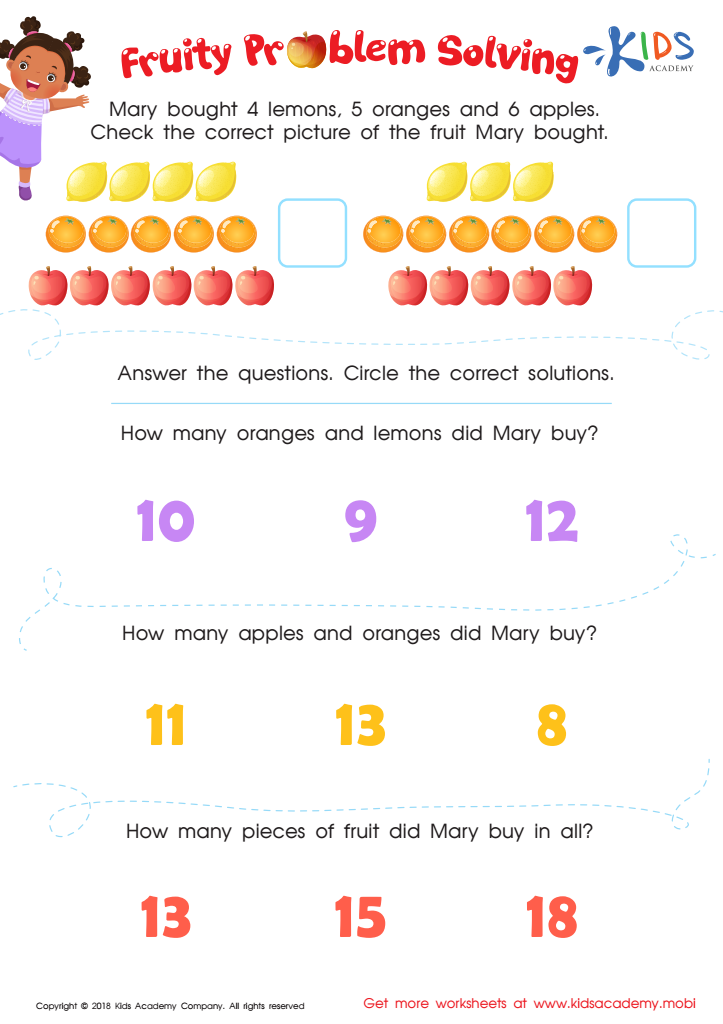

Fruity Problem Solving Worksheet


Addition and Subtraction: Word Problems Worksheet
The Importance of Learning Printables: Two-Step Word Problems for Kindergarteners
In the early stages of education, developing strong problem-solving skills is crucial for young learners. Kindergarten is a critical time for children to explore, question, and begin to understand the world around them, particularly in mathematics. Learning printables, especially worksheets on two-step word problems, serve as excellent tools for introducing complex thought processes in a manageable and engaging way.
Building Foundational Skills
Two-step word problems are an effective bridge in the journey from simple addition and subtraction to more complex mathematical reasoning. For kindergarteners, these problems help lay the foundation for critical thinking and cognitive development. By solving two-step word problems, children learn not merely to perform arithmetic but to understand the logic behind combining operations. This is a skill that will benefit them across all subjects and throughout their educational journey.
Enhancing Comprehension and Retention
Learning printables designed for two-step word problems are crafted to enhance comprehension. These worksheets often use familiar scenarios, such as playing in the park or classroom activities, which make the problems relatable and easier to understand for young minds. By contextualizing math in everyday situations, children can better grasp why mathematical operations are relevant, boosting their interest and retention.
Encouraging Independent Learning
Worksheets provide an excellent opportunity for children to work independently at their own pace, which is vital for building confidence and self-reliance. With learning printables, kindergarteners can repeatedly practice two-step word problems without immediate oversight, allowing them to make mistakes and learn from them in a low-pressure environment. This method of learning not only reinforces mathematical concepts but also encourages a growth mindset - understanding that ability can improve with effort.
Developing Reading and Analytical Skills
Two-step word problems require children to read, comprehend, and decide on the necessary steps to arrive at a solution. This process enhances not just their mathematical abilities but also their reading and analytical skills. Learning printables often include engaging visuals and step-by-step guides that help children navigate through the problem-solving process, making it less daunting and more enjoyable.
Facilitating Assessment and Feedback
For educators and parents, worksheets on two-step word problems provide a straightforward tool for assessing a child’s understanding and progress. These learning printables make it easier to identify where a child might be struggling and offer targeted help. Feedback can be given directly on the worksheet, which children can use to improve their understanding and problem-solving strategies. By revisiting these worksheets, children can also see their progression over time, which can be a significant motivational boost.
Promoting Collaborative Learning
While worksheets are often used for individual practice, they also offer a great opportunity for collaborative learning. In classroom settings or at home with siblings, kindergarteners can work together on two-step word problems. This collaboration not only makes learning more enjoyable but also encourages communication and the sharing of ideas and strategies. Children learn from each other and gain different perspectives on how to solve problems, fostering a community learning environment.
Customizable and Flexible Learning Resource
One of the significant advantages of learning printables, such as worksheets on two-step word problems, is their customizability. Educators and parents can tailor the difficulty and context of the problems to suit the specific needs and interests of the children. Whether it's incorporating seasonal themes, favorite characters, or real-world scenarios, these modifications can make learning more relevant and exciting for young students.
Supporting Diverse Learning Styles
Children have varied learning styles, and worksheets can be designed to cater to these differences. For visual learners, graphics and charts can be incorporated; for kinesthetic learners, the worksheet might include elements that require manipulation or physical engagement. This adaptability ensures that learning printables can meet a wide range of needs, making them an invaluable resource in any educational toolkit.
Conclusion
In conclusion, learning printables focused on two-step word problems are a crucial educational resource for kindergarten children. They not only help in developing essential mathematical skills but also enhance reading comprehension, analytical thinking, and independent learning capabilities. Moreover, these worksheets facilitate personalized and collaborative learning experiences, making them a versatile tool in nurturing young minds. By integrating these printables into early education, we equip children with the problem-solving skills necessary to navigate both their academic and everyday challenges more effectively.
 Assign to My Students
Assign to My Students










